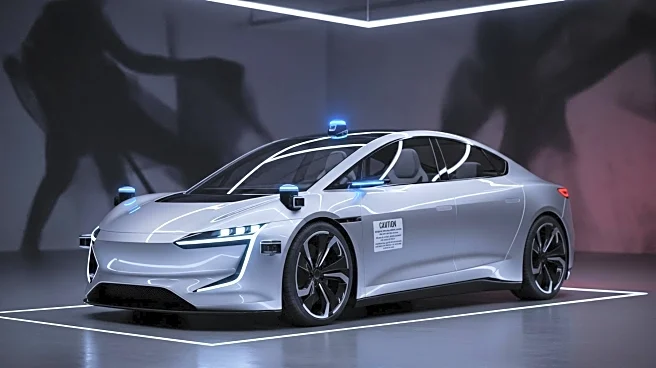What is the story about?
What's Happening?
Tesla's Full Self-Driving (FSD) technology, initially seen as a groundbreaking innovation, is now facing significant consumer skepticism and regulatory scrutiny. Recent surveys indicate that 35% of U.S. consumers are less likely to purchase a Tesla due to FSD, while only 14% are attracted by it. Concerns over safety and accountability are prevalent, with 48% of consumers believing FSD should be illegal and 70% advocating for the use of both LiDAR and cameras in autonomous vehicles, contrary to Tesla's camera-only approach. The National Highway Traffic Safety Administration is investigating 2.4 million FSD-equipped vehicles following a fatal crash, and Tesla has been ordered to pay $329 million in damages in Miami due to an Autopilot-related accident.
Why It's Important?
The backlash against Tesla's FSD technology has significant implications for the company's brand and market position. Tesla's net brand positivity score has dropped to -15, the lowest among major electric vehicle manufacturers. This decline in consumer trust could affect Tesla's sales and investor confidence, especially as the self-driving car market grows at a 22% compound annual rate. Regulatory challenges in the U.S. and Europe further complicate Tesla's ability to deploy FSD technology, potentially hindering its competitive edge against rivals like Waymo, which is perceived as more reliable.
What's Next?
Tesla plans to release the FSD v14 update, promising a substantial increase in model parameters. However, regulatory constraints may limit its deployment. The company needs to address consumer trust issues and collaborate with regulators to improve safety and transparency. Failure to do so could continue to impact Tesla's brand value and long-term growth prospects.
Beyond the Headlines
The controversy surrounding Tesla's FSD technology highlights broader ethical and legal questions about the deployment of autonomous vehicles. The demand for accountability and transparency in crash data underscores the tension between technological innovation and public safety. As the industry evolves, these issues will likely shape future regulations and consumer expectations.
















